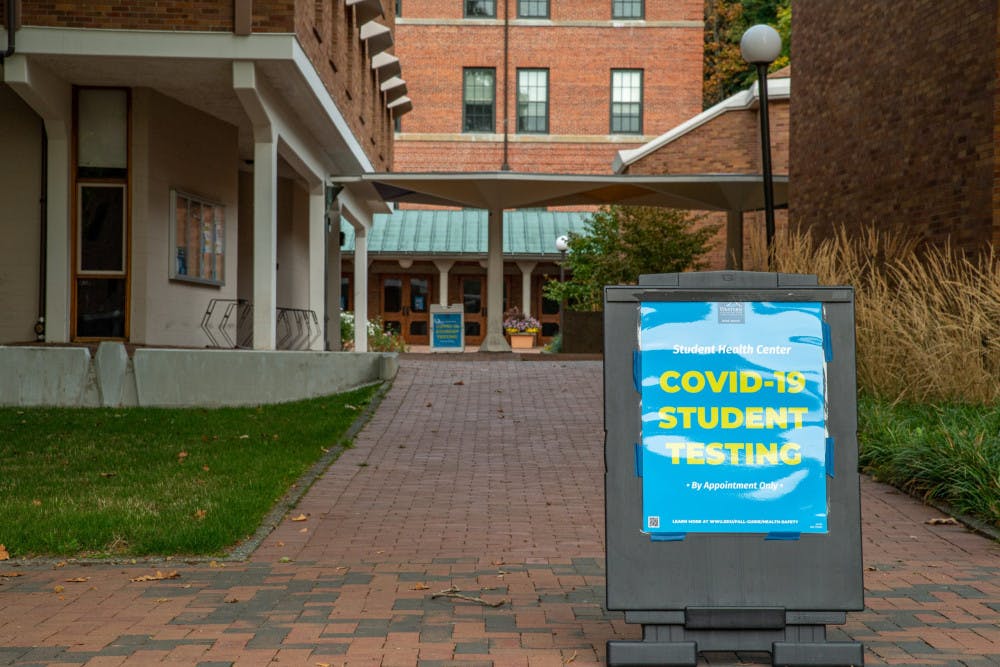Those looking to travel during the pandemic should exercise caution, says health expert

Health experts recommend getting COVID-19 tested before and after traveling. All Western students can sign up to get tested by contacting the Student Health Center. Photo by: Nathan Schumock
As Thanksgiving break approaches, traditional holiday travel practices raise the question: Will students' travels lead to a higher risk of spreading COVID-19 to family members?
The best practice to reduce that risk is to avoid travel altogether, said Dr. Ali Mokdad, chief strategy officer for Population Health and professor of Health Metrics Sciences at the Institute for Health Metrics and Evaluation at the University of Washington.
However, those with plans to travel should exercise common sense before, during and after their trip, Mokdad said.
“If you really want to be with your family, you have to isolate yourself for two weeks before you do anything,” Mokdad said. “Don't party before you go to your parents.”
Plan to get tested for COVID-19 before traveling and wait for a negative result, Mokdad said. Whether traveling by car or plane, take precaution by disinfecting your seating area, keeping your mask on and sanitizing your hands frequently.
Due to the risk of picking up COVID-19 while traveling, it is also best practice to get tested a second time after arriving at your destination, Mokdad said.
“[A] second test is ideal,” Mokdad said. “But, short of a second test, be careful within [your] household not to come close to others.”
In a health brief published on Oct. 29, the American College Health Association urged colleges to actively discourage students from traveling over the Thanksgiving break and encourage students to have a virtual Thanksgiving event with family members instead.
As of Nov. 6, Western has not released a statement about student holiday travel.
But students are exercising some caution. Lauren Wallach, a third-year student at Western, has plans to visit her family in Bainbridge Island, Washington, for Thanksgiving break.
“The only person that I see in Bellingham is my roommate, and she only sees me as well,” Wallach said. “Our bubble here is quite small,” Wallach said.
Wallach said her roommate is also from Bainbridge Island, so the two will be carpooling home.
The university does not mandate students take precautionary COVID-19 tests before traveling, said Vicky Vanderwerf, associate director of Resident Life at Western. Instead, the Student Health Center will continue to test on-campus students every two weeks while strongly encouraging on-campus students to get tested both before traveling home and before returning to campus.
Western students who do not live on campus can contact the Student Health Center to be tested.
To mitigate the risk of students congregating after Thanksgiving trips and possibly causing a COVID-19 outbreak, all Western classes will be moved to remote format after Thanksgiving break. If traveling during Thanksgiving break, students living in on-campus housing are expected to get tested within a two week time frame of returning to campus, Vanderwerf said.
“We all have circumstances where we have to [travel], especially around the holidays,” Mokdad said. “And yes, if we do it, we have to be very careful to minimize the chance of getting the bug.”





